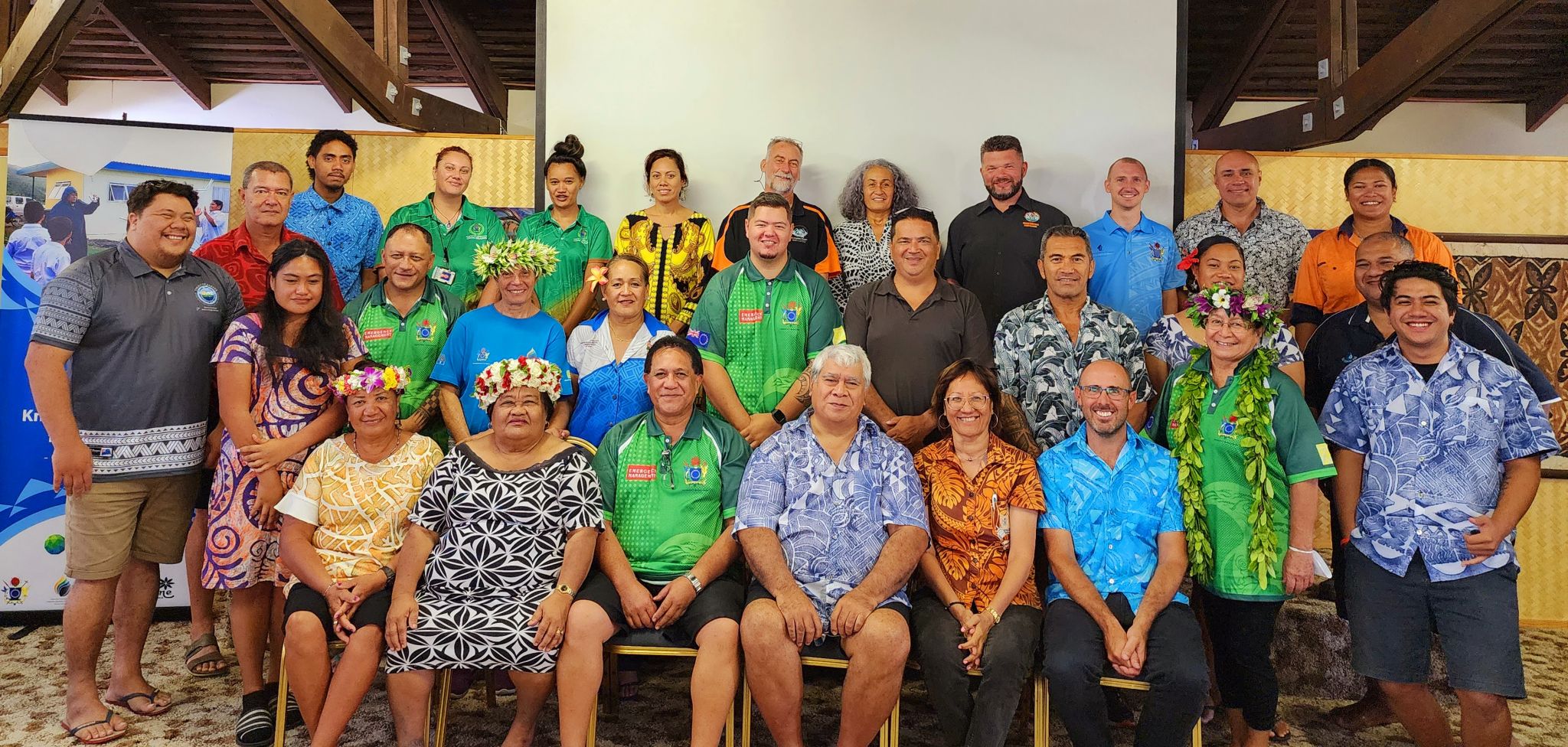Stakeholders prepare for 2022/2023 cyclone season
Monday 14 November 2022 | Written by Melina Etches | Published in Environment, National, Weather

The participants at the Cook Islands Meteorological Service organised National Climate and Oceans Forum workshop on Friday last week. Picture: MELINA TUIRAVAKAI/22111303
The Cook Islands Meteorological Service facilitated the National Climate and Oceans Forum Workshop with its stakeholders on Friday to prepare them for the 2022/23 cyclone season which runs from November to April.
The training workshop focused on Meteorological Office’s services and products that can be issued to specific stakeholders in emergencies especially during the cyclone season.
According to the Cook Islands Meteorological Service director, Arona Ngari: “This is the La Niña period, so then the risk of a tropical cyclone is low, however we still have to be resilient in our preparedness for a tropical cyclone because it is our tropical cyclone season.”
“There is an expectation of between eight to 10 cyclones for the Pacific, but for us here in the Cook Islands we are looking at zero or one cyclone, so the risk is certainly reduced.”
Ngari said although the forecast for a cyclone might be zero for the Northern Cook Islands and probably one for later in the period, it was important to plan activities throughout the year.
“So, it’s important that we build this relationship between ourselves and our stakeholders, and at the same time promote the visibility for our National Meteorological Service to a point where it becomes a reliable source of communication to our communities.”
The La Niña period is expected to go on until March which for the Northern Cook Islands means “it’s going to be dry”.
For the Southern Cook Islands, it will be “on and off” as far as rain is concerned, said Ngari, adding there would be some dry spells as well as some wet periods in the coming months.
“People will have to be cautious with the use of water.”
Walter Tuarae-White from To Tatou Vai water authority said the workshop was very informative, including an interesting presentation about wave data.
“They did a really good job and congratulations to them for putting together a really good presentation – (especially) their modelling and graphics around the forecast for rain,” said Tuarae-White.
“It is always helpful to know long term forecasts.”
Cook Islands Meteorological Service manager, Bates Manea presented on the current Early Action Rainfall Watch (EAR Watch), which provides sectors with a summary of recent rainfall patterns, for the Northern and Southern groups.
Matt Blacka, national program manager, Climate and Ocean Services, delivered the “Ocean Outlook” review and summary.
Ngari also presented on “Tsunami and Swells”, updated projections for key climate parameters in the country and the cyclone forecasting relating to El Niño-Southern Oscillation.
The Cook Islands Meteorological Services along with regional climate partners will continue to closely monitor conditions in the tropical Pacific as well as model outlooks for further developments.












































